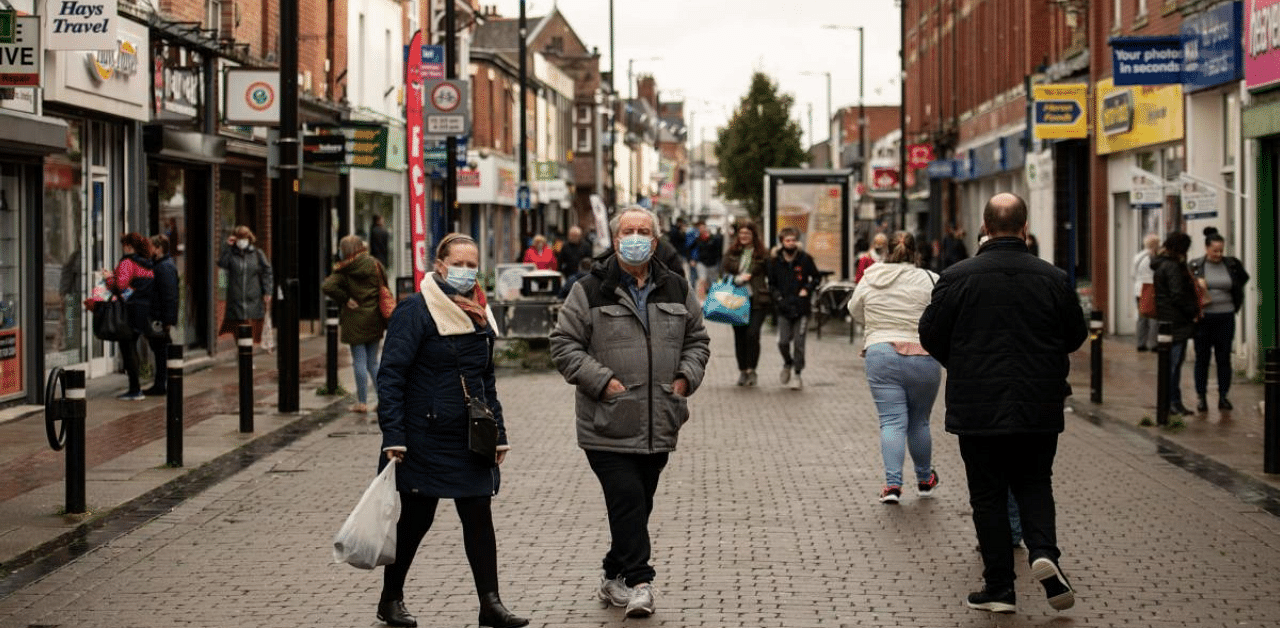
Grim data highlighted the struggle for authorities around the world to bring the coronavirus pandemic under control Saturday, as the US reported 80,000 infections in a single day, France extended a curfew to two-thirds of citizens and Germany's death toll passed 10,000.
The World Health Organization had earlier warned of an "exponential" rise in infections threatening health systems' ability to cope.
But populations weary of social isolation and economic hardship have pushed back against fresh restrictions to slow the resurgent virus' spread, including overnight clashes in hard-hit Naples between Italian police and hundreds of protesters.
In the US, Covid-19 has become a central election issue ahead of a November 3 vote, with President Donald Trump on Friday promising attendees at a Florida rally that "we're going to quickly end this pandemic, this horrible plague."
Meanwhile challenger Joe Biden matched Trump's vow to make a vaccine available for free to all who want it "whether or not you're insured" and said the Republican incumbent has "given up" on controlling the outbreak.
Johns Hopkins University had earlier reported 79,963 new American cases in 24 hours, a new record, although the number of daily deaths has remained broadly stable since the beginning of autumn at between 700 and 800.
Overall, more than 223,000 people have died from Covid-19 in the US.
France on Friday followed Spain past the milestone of one million cases, while the government extended an overnight curfew designed to slow the spread to affect some 46 million people.
"Whatever we do in the coming days and weeks, the toll will grow heavier," Health Minister Olivier Veran told lawmakers.
And after Germany recorded its 10,000th death from the coronavirus, Chancellor Angela Merkel told citizens that "the order of the day is to reduce contacts, to meet as few people as possible" in a weekly video podcast.
In Poland, President Andrzej Duda tested positive for Covid-19, although an aide wrote on Twitter that he was "fine".
WHO chief Tedros Adhanom Ghebreyesus had on Friday warned that "too many countries are seeing an exponential increase in Covid-19 cases and that is now leading to hospitals and intensive care units running close to or above capacity -- and we're still only in October."
"We urge leaders to take immediate action to prevent further unnecessary deaths."
That message was echoed by the European Centre for Disease Prevention and Control (ECDC), whose director Andrea Ammon warned of a "highly concerning epidemiological situation".
But moves to reintroduce restrictions were met with protest in parts of the continent.
In Naples, hundreds of demonstrators turned out after a call on social media to resist a new curfew in parts of Italy, throwing objects at police and setting rubbish bins on fire.
The country is reeling from its worst post-war recession after a gruelling two-month national lockdown prompted by one of Europe's worst outbreaks, and authorities have so far been reluctant to repeat the drastic quarantine restrictions seen then.
Wales entered a full lockdown on Friday evening, a day after Ireland shut down, while Poland adopted a nationwide "red zone" lockdown mandating the partial closure of primary schools and restaurants.
Only Sweden, which famously refused to lock down earlier this year, continued to stick to its guns despite a rise in cases.
After Spain became the first European country to officially record a million Covid-19 cases earlier in the week, Prime Minister Pedro Sanchez said Friday the real number of infections was likely more than triple that number.
Across the planet, Covid-19 has now claimed the lives of 1.1 million people and infected close to 42 million, with the WHO warning the northern hemisphere was at a critical juncture.
Belgium has seen one of Europe's deadliest per capita outbreaks and has found itself suffering some of the highest second-wave infection rates in Europe.
"We're losing. We're overwhelmed. We're bitter," said Benoit Misset, head of the intensive care unit at the University Hospital in the city of Liege, where several of his staff are having to work despite being positive -- if asymptomatic -- themselves.
Work has continued on the international quest to find a vaccine for the disease, with clinical trials for one candidate developed by AstraZeneca and Oxford University resuming in the United States on Friday, six weeks after a test subject became ill.